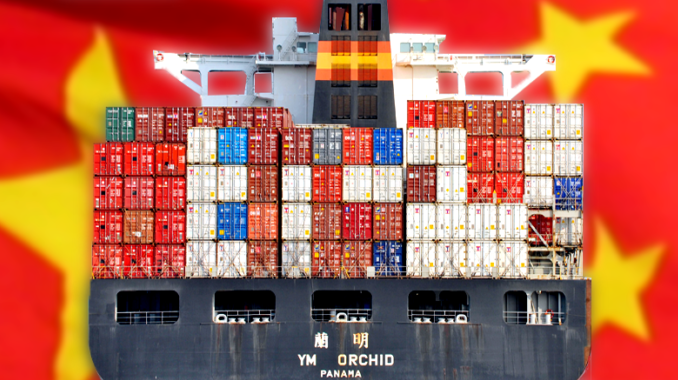
Well, that escalated quickly.
As The News Blender covered Thursday morning, President Trump on Wednesday directed United States Trade Representative Robert Lighthizer to consider raising the proposed tariffs on $200 billion in Chinese imports from 10% to 25%, in response to becalmed negotiations and accusations of China devaluing its currency.
Lighthizer explained in a statement that “The increase in the possible rate of the additional duty is intended to provide the Administration with additional options to encourage China to change its harmful policies and behavior and adopt policies that will lead to fairer markets and prosperity for all of our citizens.”
China has so far shown no signs of relenting, though, and on Friday announced new tariffs of their own aimed at $60 billion in United States exports.
As Politico details in its report,
China said it was taking the action “because the U.S. side has repeatedly escalated the situation despite the interests of both enterprises and consumers,” according to an informal translation from a China Ministry of Commerce statement. “China has to take necessary counter-measures to defend the country’s dignity and the interests of the people, defend free trade and the multilateral system, and defend the common interests of all countries in the world.“
The tariffs will be applied to 5,207 different types of American goods at rates of 5-, 10-, 20-, and 25 percent, according to China’s Ministry of Finance website. The targeted items, Reuters says, include agricultural and energy products, semiconductors, some helicopters, small-to-mid-sized aircraft, condoms, iron ore, steel products, roasted coffee, sugar, foods containing chocolate, candies, and even car windscreens.
Per CNN, this new round of tariffs would impact about 38% of all American exports to China, which amount to around $170 billion in total.
The taxes will be implemented at such time that the U.S. puts its additional tariff measures into effect, the Customs Tariff Commission of the State Council said.
However, White House National Economic Council Director Larry Kudlow contended in an interview on Fox Business that the tariffs were “actually a much lower number” than the White House had been expecting. “The Chinese had better not underestimate the determination of President Trump,” Kudlow said, adding that “he is going to stand tough.”
Why It Matters
U.S. exports to China have grown 86% over the past decade, far outpacing exports to the rest of the world (21%). These exports account for 1 million American jobs annually across a number of different industries. A trade war will guarantee that neither of these continues to be the case.

1 Trackback / Pingback
Comments are closed.